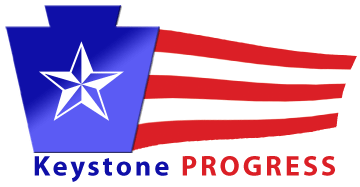New study recommends in-sourcing school transportation operations to save taxpayers millions
Total costs for all taxpayers are nearly $223,900 higher when a typical Pennsylvania school district goes from providing all bus services in house to contracting with a private operator. If every school district in Pennsylvania in-sourced transportation services, taxpayers would save an estimated $78 million.
“Handing the reins over to the private sector is not always a good bargain for taxpayers,” said Dr. Stephen Herzenberg, an economist and co-author of the study. “Over two decades of hard data make clear that school bus contracting is a poor bargain.
“At a time when deep cuts to schools are driving up class sizes and limiting student opportunities, should we pay more to private companies to transport kids to school?”
Transporting school students is a booming private industry today. 4,000 companies nationwide transport roughly 25 million students to school each day. In Pennsylvania, 72% of school bus transportation was contracted out by school districts in 2008, up from 62% in 1986.
Some school districts contract out school bus transportation to gain a short-term infusion of cash from selling bus fleets—an especially alluring option with districts now facing deep cuts to funding for classrooms. The state also currently provides higher reimbursement for districts that contract out school bus services, distorting district decision-making and contributing to the higher overall price tag for taxpayers.
Rather than folding transportation funding into block grants for school districts, as proposed by Governor Corbett, the Keystone Research Center recommends eliminating the higher reimbursement for contracted services and channeling state savings into higher basic education funding. With the playing field level between contracting and self-supplied bus services, the state should provide technical assistance so that districts can capitalize on opportunities to cut costs through in-sourcing, and negotiate better deals with private companies when they do contract out.
The Keystone study relied on state Department of Education data from 1986 to 2008. Researchers examined the impact of contracting out on costs after controlling for school district enrollment, special education student transportation costs, the price of fuel, and the wealth and income of each district.
Researchers found that, because it more generously reimburses districts when they contract out, the state picks up essentially all of the cost increase with contracting out.
The researchers also identified 29 school districts that substantially increased their use of private carriers between 1992 and 2001. In the first year after privatization in these districts, total spending on student transportation increased by 10% or more in 20 out of the 29 school districts.
One reason contracting out costs more, the Keystone researchers note, is the leverage contractors have once a school district sells its bus fleet. “The upfront cost of repurchasing a fleet of buses is a major obstacle for a district that wants to cut ties with a private operator,” said Dr. Mark Price, economist and co-author of the study. “Switching to a new contractor may not be an option either, because some areas have only one or two private companies. As a result, contractors negotiate higher payments or slip in added costs for field trips or special services.”
Private profits and high private-sector executive- and managerial-level salaries also contribute to the high rates charged by private companies. Districts also incur costs for monitoring contractors.
The limited competition, contractor leverage, and high private salaries that lead to higher costs with privatization are not unique to the school transportation industry. Academic research shows that these challenges arise with privatization of many services. This underscores the importance of using data to evaluate when to privatize or in-source, and not simply assuming that privatization is more efficient.
Keystone recommends that technical assistance to school districts to reevaluate their transportation services be delivered through the Pennsylvania Association of School Business Officials. The state could also make low-interest loans available to assist districts with the purchase of new school buses, and create a non-profit that steps in when needed to provide more competition. A commonwealth non-profit also avoids the need for district-owned fleets.
“Pennsylvania should make every tax dollar count instead of giving school districts incentives to adopt inefficient transportation systems,” Dr. Herzenberg said. “We can change course now and use the savings to improve the quality of our children’s education.”
Appendix F in the Keystone Research Center report includes data on how much individual districts contract out.

1 comment:
I could say that this site is perfect for you if you are looking for private school transportation il. So click it now!
Post a Comment